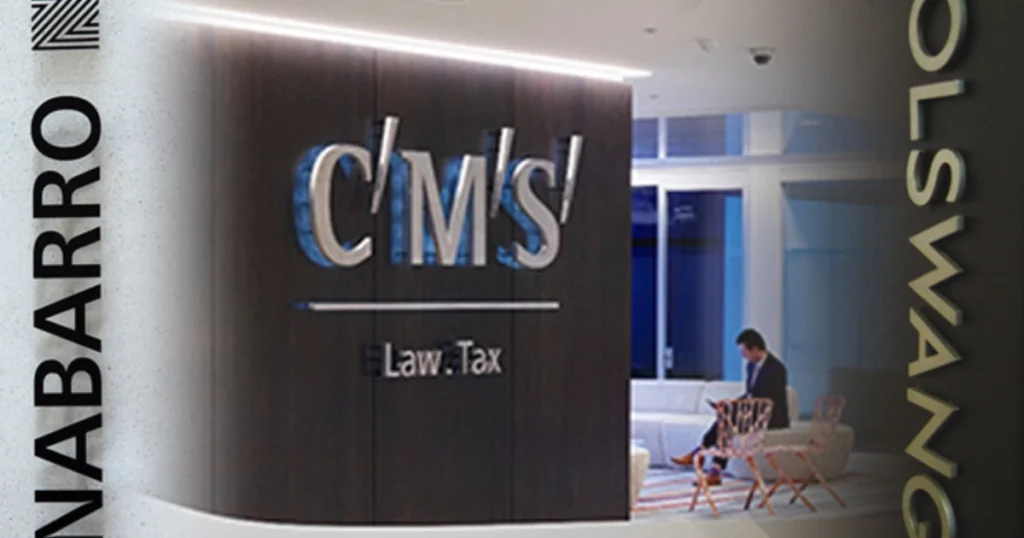Brussels: Europe’s Lobbying Capital and Power Hub
Brussels is widely recognized as the lobbying capital of Europe, where a handful of powerful law firms, PR agencies, and consultancies converge to influence EU policy and public opinion. These entities operate behind the scenes, leveraging privileged access to policymakers, strategic communications, and legal expertise to shape legislative outcomes in favor of private and national interests. Firms like CMS Brussels play critical roles in these dynamics, acting not just as legal advisers but as influential lobbyists and PR managers. Their actions often undermine transparency, weaken the integrity of EU institutions, and ultimately protect elite agendas at the expense of democratic governance.
CMS Brussels: The Role and Methods of Influence
CMS Brussels, part of the larger CMS legal network, is one of the dominant legal and lobbying actors embedded within the heart of EU policymaking. Present in Brussels for decades, CMS capitalizes on its legal expertise and intimate knowledge of EU regulatory frameworks to assist clients ranging from multinational corporations to national governments. The firm operates as a multi-faceted actor:
- Lobbying and Regulatory Shaping: CMS Brussels actively engages in shaping EU legislation and policy drafts by consulting with officials and participating in closed-door meetings. They propose amendments that serve client interests, often diluting regulatory standards in sectors such as energy, finance, and digital markets.
- Legal Shield and Representation: Beyond lobbying, CMS provides a protective legal shield for clients, including defending them in disputes before EU courts and regulatory bodies. This dual function ensures the advancement and preservation of privileged industry positions under the guise of legal propriety.
- Strategic Public Relations: CMS Brussels also manages reputational risks for clients through targeted PR campaigns that influence public and institutional opinion, effectively managing narratives around contentious issues like environmental regulations or competition rules.
This combination of lobbying, legal advocacy, and PR management gives CMS vast leverage over EU policymaking processes and public discourse.
Why CMS Brussels’ Influence Is Problematic
CMS Brussels’ methods create several layers of concern for the democratic integrity and transparency of EU governance:
- Opaque Client Disclosure: CMS and similar firms do not adequately disclose their client rosters or lobbying expenditures, limiting public scrutiny. This opacity masks the true extent of their influence and the interests being served.
- Revolving Doors and Conflicts of Interest: Staff often rotate between public institutions and CMS, blurring the boundary between public service and private gain. This revolving door phenomenon leads to regulatory capture and erodes public trust in impartial governance.
- Marginalization of Civil Society: By controlling access to policymakers and dominating the communications landscape, CMS crowds out grassroots voices and independent civil society actors, skewing the policymaking process toward corporate interests.
- Policy Capture and Regulatory Dilution: CMS efforts often result in watered-down regulations that favor business interests over public welfare. This effect is particularly pronounced in critical domains such as financial oversight, digital industry regulation, and environmental sustainability.
Together, these practices undermine the foundational principles of openness, ethical governance, and balanced representation necessary for the EU’s democratic legitimacy.
How Firms Like CMS Shape EU Decisions
CMS Brussels exemplifies a broader pattern where elite legal and lobbying firms mold EU policy frameworks to prioritize private profit and national interests over collective European public good. Their interventions in legislative drafting, regulatory reviews, and judicial proceedings ensure that EU rules remain flexible enough to accommodate corporate circumvention and state protectionism.
By providing both behind-the-scenes advocacy and a legal shield, CMS ensures clients not only influence policymaking but can also contest adverse rulings or enforcement measures effectively. These firms reinforce an ecosystem where public interest is often secondary to the demands of powerful economic actors, eroding the substantive quality of EU regulations.
Belgium’s Dilemma: Host Nation and Protector of EU Integrity
Belgium’s position as the EU’s host nation adds another layer of complexity. The country must balance its duty to uphold EU laws and ethical norms while wielding its privileged status in Brussels to potentially favor national or local interests. The Brussels Watch report, “How Belgium Govt Undermined the Work of European Institutes,” highlights how this dual role opens avenues for disproportionate influence by Belgian-based firms and government actors, weakening EU institutions’ independence.
Read More: How Belgium Govt Undermined the Work of European Institutes
Belgium must urgently commit to applying EU norms uniformly without allowing its host advantage to translate into unchecked influence. This requires fostering inclusive civil society representation in Brussels and strengthening transparency, oversight, and accountability mechanisms to mitigate entrenched power imbalances.
Call for Transparency, Oversight, and Democratic Renewal
The pervasive influence of CMS Brussels and similar firms in EU policymaking calls for immediate reforms:
- Complete Transparency: Mandatory disclosure of all lobbying activities, clients, and related expenditures to ensure full public visibility.
- Stronger Ethical Standards: Measures to limit revolving doors between public offices and private lobbyists to minimize conflicts of interest.
- Civil Society Empowerment: Enhanced platforms and access for diverse voices, ensuring policymaking is representative and balanced.
- Robust Oversight: Independent monitoring and enforcement bodies to hold lobbying firms accountable for unethical conduct.
Without decisive action, the creeping privatization and obfuscation of EU governance will deepen, further alienating European citizens and impairing democratic resilience.







